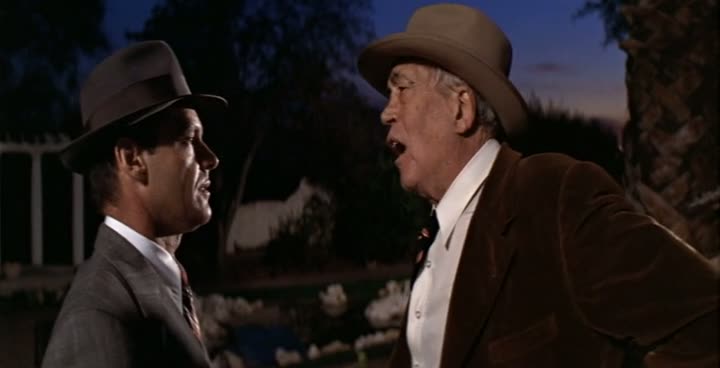This essay originally appeared on LWON in 2012 as part of a series on the seven deadly sins. Since then, sociopathy hasn’t gone away, so we’re reposting it here.
I wuz robbed.
A few months ago a scientific discovery that I had covered in depth in my most recent book became the subject of a major news story. The same morning that the story broke, I got an email from a member of one of the discovery teams suggesting that I write an op-ed column on the subject for a certain influential publication. I emailed back immediately to say that I had just gotten off the phone with an editor at that influential publication and that a column by me was already in progress. The following day this scientist submitted his own op-ed to the same publication.
Let’s call him Dick, and not because his name is Richard. (It’s not.)
Dick can be litigious, so I am leaving out a lot of details. Suffice to say that because Dick—oh, I suppose I should just grow up and grant him an honorific: Dr. Wad—is more prominent as a scientist than I am as a writer, the newspaper published his op-ed.
A sampling of responses from my friends and editors, as well as the scientific peers of Dr. Wad, to whom I recounted this incident:
“Wow. Oboy.”
“This guy is something else.”
“Jesus money God Christ!”
That response was my favorite. But for the purposes of a post on the sin of greed, the following might be more useful, if less cathartic.
“It’s remarkable. How does a person justify to himself doing something like that?”
Exactly. I wouldn’t do something like this to someone. My friend who wrote this comment wouldn’t do something like this. None of the other friends, editors, and said scientist’s peers to whom I recounted this incident would do this.
But Dr. Wad would.
That quality of doing this to someone is, I suspect, what distinguishes greed from the six other deadly sins. Most of the rest afflict the sinner more than the sinnee. Sloth, pride, envy, gluttony: Indulge in them, and, well, you’ll just have to live with yourself. Lust, if unrequited, also belongs in this category. (And if the lust is indeed requited, who’s to say it’s a sin?) The closest that any other sin comes to matching greed for deleterious impact on others is wrath. But I’d already endured Dr. Wad’s wrath; he had spent months disputing the characterization of him in my book (including an accusation by other scientists that he had engaged in borderline unethical behavior). Yet even if you’re the object of someone else’s wrath, you can often take some comfort in the question, “What’s that guy’s problem?”
Not so with greed. Greed gets in your face. Greed says, “Gimme—now.” Sure, you can still console yourself with the question, “What’s that guy’s problem?” (Witness this post.) But you will also have to turn your pockets inside-out and ask, “How much is that guy’s problem going to cost me?”
At which point the investigation shifts from How can someone do this to someone? to How can someone justify this act to himself?—from an emphasis on one’s deleterious impact on others to an emphasis on living with the knowledge of one’s deleterious impact on others.
Science offers the beginning of a possible answer. Neuroimaging studies strongly suggest that the orbitofrontal cortex is the brain’s center of empathy and impulse control. If the orbitofrontal cortex is damaged, underdeveloped, or absent, research subjects seem to be less capable of understanding or caring about the effects of their actions on others. The same is true if the white matter connection between the orbitofrontal cortex and the amygdala—the brain’s center of primitive urges—is compromised.
But neuroimaging is still so new and untested that such conclusions are premature. Even if the relationship between parts of the brain and a person’s behavior were to become clear, the question of predisposition versus predetermination—of nurture versus nature, of tendency versus compulsion—would remain unclear.
We all, from time to time, partake in the sins of sloth, gluttony, wrath, pride, lust, and envy. We all, however, do not partake in the extension of envy into greed—into the actual appropriation of more than we need or deserve. This exclusivity, I think, is what feeds our fascination with greed: How can one behave in a manner that is beneficial to oneself only if it is to the detriment of others?
Can a monster be human?
This question lies at the heart of just about every pop culture examination of a mobster. Consider The Sopranos. Can a Tony Soprano be redeemed? Might a Mob boss recognize his sins and reverse his moral trajectory? Could someone who was like you and me in every way except one truly change?
In the final season of the series, Dr. Melfi, Tony’s therapist, reluctantly comes to the realization that her patient is a sociopath and that she will never be able to help him precisely because he is a sociopath. Trying to help a sociopath, she finally understands, only allows the sociopath a stage upon which he can hone his empathetic-seeming exterior in order to advance his predatory inner life.
Not that the sociopath himself thinks he’s enacting an approximation of empathy. He thinks he’s like everyone else: He’s doing what he does because he’s got his reasons.
In one of the climactic scenes from the movie Chinatown (screenplay—glorious—by Robert Towne), the private eye J. J. Gittes (Jack Nicholson) confronts the Biblical villain Noah Cross (John Huston) about rapes both literal (repeat after me: “My sister! My daughter!”) and metaphorical (turning the Los Angeles desert into a city through the acquisition and exploitation of vast tracts of land).
First, the sociopath assumes that everyone else thinks the way he does.
Gittes: How much are you worth?
Cross: I have no idea. How much do you want?
And then, when confronted with evidence that not everyone else thinks the way he does, he needs to justify his actions to himself.
Gittes: I just wanna know how much you’re worth. Ten million?
Cross: Oh my, yes!
Gittes: Why are you doing it? How much better can you eat? What could you buy that you can’t already afford?
Cross: The future, Mr. Gittes! The future!
Well, sure, the future. He’s doing it for the benefit of generations yet unborn. Who could argue with that?
Jesus money God Christ.
* * *
Top image: Creative Commons EdZ.


An etymological note: the phrase, Jesus money God Christ, came from an old lady in Pennsylvania. She was my husband’s landlady in the 1950’s. I don’t know whether she made it up or not — I’ve never heard it before or since. It was the worst profanity she could think of.
Richard, thanks so much for reposting this. Recently, I’ve been plumbing the depths of the human nature by reading self-help books on the topic of divorce. The word “sociopath” gets used a lot–in terms of “beware, the spouse you leave might suddenly turn into the a sociopath, a transformation you didn’t expect, but he might calm down in a few years.” Or, “beware, your spouse has always been a sociopath, and now he is going to get a lot worse, but it will be okay, you’ve planned for this moment”
Your post reminds me that there is the territory of the badly behaved and the truly-bad-who-will-behave-very-badly-every-opportunity-they-get.
But what is a person to do? Reality check with friends (and editors if it is a professional slight) as you did. That sort of helps.
All I can really do, Richard, is let the great wheel of time keep spinning. Hour after hour. Season after season. And be grateful for these moments of reflection and the freedom I sometimes truly feel.
Thank you, Rachel, for these kind and thoughtful comments.